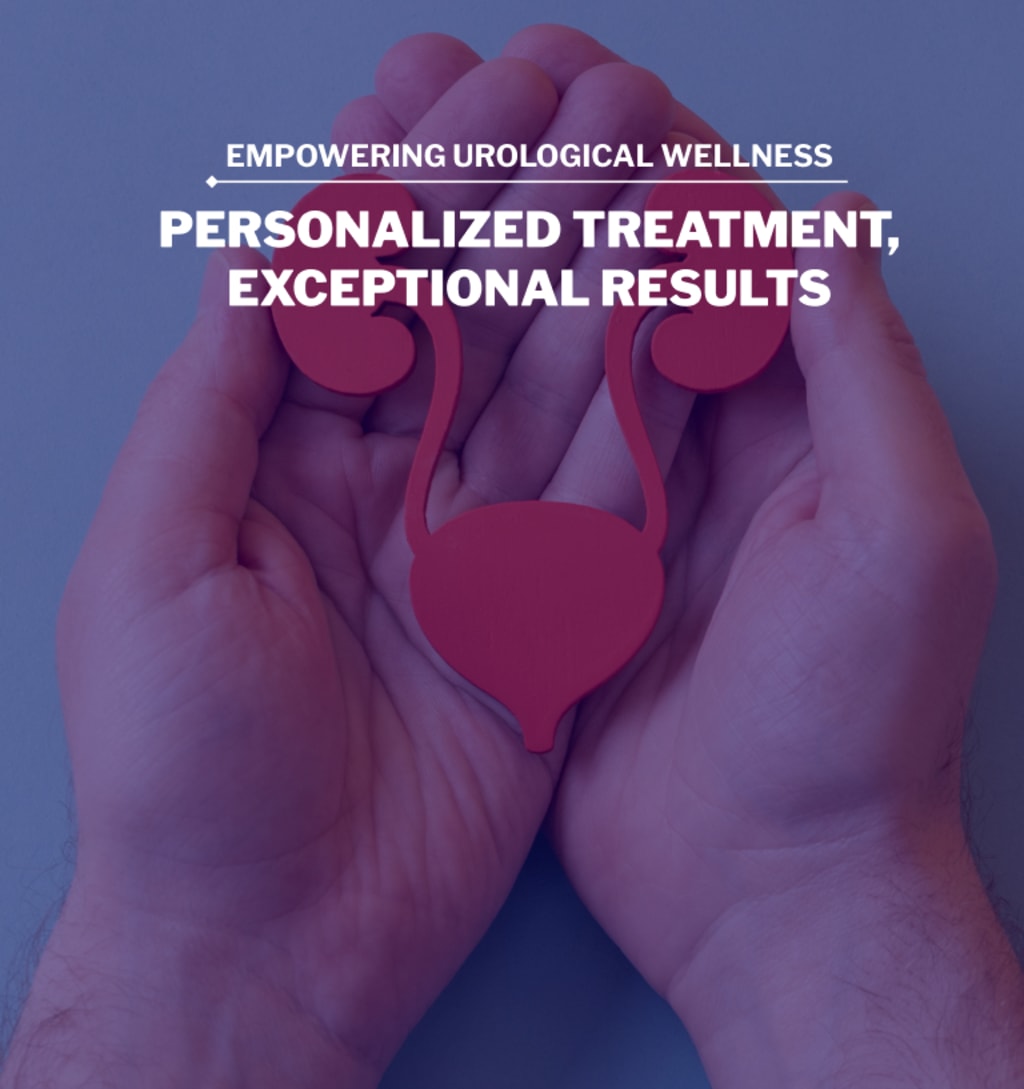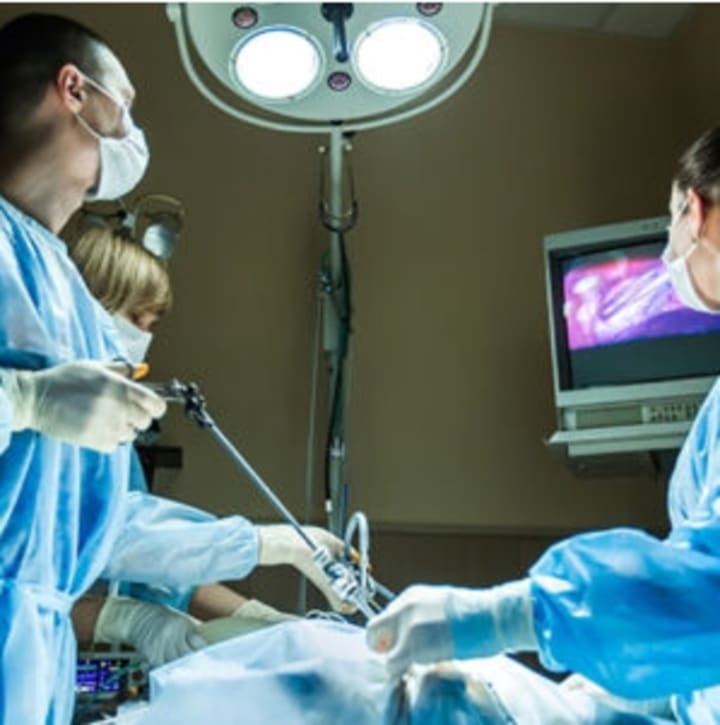Leading Urology Specialist in Chennai: Expertise in Urological Surgeries
Urology Specialist in Chennai

Introduction
In the field of urology, there have been significant developments in the diagnostic, treatment and surgical approaches in recent years. Urologists have been at the forefront in implementing and perfecting innovations like cutting-edge urological procedures and creative patient care strategies,To improve patient outcomes and raise the standard of treatment. We will examine some of the significant urology-related improvements used by Urology Specialist in Chennai. We will explore the most recent surgical methods, minimally invasive techniques, and cutting-edge technologies that have transformed the field of Urology.
Robotic Assisted Surgery
The use of robotic-assisted surgery has been adopted by urology healthcare professionals to improve surgical accuracy and patient outcomes. The urology doctors in Chennai are skilled in a variety of robotic-assisted surgeries, including prostatectomy, partial nephrectomy and pyeloplasty.The da Vinci Surgical System and other robotic surgical technologies let urologists carry out difficult treatments with more dexterity and visualization. Reduced blood loss, shorter hospital stays, quicker recovery times and enhanced surgical results are just a few advantages of robotic surgery.
Laser Advancements
The field of Urology has been profited from the advancements of lasers. The application of lasers in urology has transformed therapeutic strategies by offering minimally invasive alternatives and enhancing patient healing and comfort. Laser treatments serve as critical tools in the treatment of urological problems because they provide accurate tissue ablation, less bleeding and improved visualization. For procedures like laser lithotripsy, which includes the fragmentation of kidney stones and laser treatment for benign prostatic hyperplasia (BPH), laser technology is commonly used by Urology Specialist.
Advanced Imaging Modalities
The medical practitioners of Urology make better use of cutting-edge imaging techniques to diagnose and treat urological disorders. Imaging methods including contrast-enhanced ultrasound (CEUS) and multiparametric magnetic resonance imaging (MRI) allow for detailed visualization of the urinary system and aid in the identification and characterization of tumors. The early diagnosis and precise staging of urological malignancies have greatly benefited from the use of advanced imaging tools, which has improved treatment outcomes. These imaging techniques offer useful data for planning and making decisions about patient care, enabling urologists to provide patients with specialized treatments.
Tissue engineering and regenerative medicine
The potential of regenerative medicine and tissue engineering in the field of urology has been welcomed by Urology Specialist in Chennai. Research and clinical studies on tissue engineering for bladder augmentation, penile tissue regeneration and urethral restoration are actively performed by doctors of urology. These latest techniques intend to repair or replace urological organs and tissues that have undergone damage or malfunction. Regenerative treatments that restore function and enhance the patient’s quality of life revolutionize the way by which urological problems are treated.

Laparoscopic and Endoscopic Procedures
The urologists are skilled in the treating of urological problems using minimally invasive endoscopic and laparoscopic procedures to help patients heal more quickly and have less postoperative pain. Specialized tools and a camera are used in laparoscopic surgery to execute procedures through tiny incisions. These techniques are used for treatments including radical prostatectomy and nephrectomy. On the other hand, endoscopic operations make use of flexible and tiny devices to access and treat urological diseases, reducing the necessity for noticeable incisions. For treatments including ureteroscopy, cystoscopy and transurethral resection of bladder tumors (TURBT), endoscopic techniques are implemented.
Focal Therapy for Prostate Cancer
For the management of prostate cancer Urologists implement focused treatment, such as focal therapy,that targets only the prostate's malignant tissue while sparing surrounding healthy tissue and minimizing negative effects. Cryotherapy, photodynamic treatment, and high-intensity focused ultrasound are some of the focal therapeutic procedures. They perform cutting-edge imaging procedures like multiparametric MRI and fusion-guided biopsies to precisely pinpoint the position and size of the tumor inside the prostate. These minimally invasive techniques provide patients with less side effects and quicker recoveries while effectively controlling cancer.
Single-Incision and Natural Orifice Surgery
Single-incision and natural orifice surgery for urological disorders focus on minimizing visual scarring and subsequent suffering by performing surgery through a single small incision or natural bodily holes. Operations including nephrectomy, adrenalectomy and prostatectomy are based on single-incision laparoscopic surgery (SILS) and natural orifice transluminal endoscopic surgery (NOTES).
Genetic testing and Personalized Medicine
The urologists acknowledge the value of genetic testing and personalized medicine. They use genetic testing to manage disorders including hereditary kidney cancer syndromes, assess the risk of prostate cancer, and forecast treatment outcome. They are able to pinpoint particular genetic mutations and biomarkers linked to urological problems by using genetic testing and molecular profiling. This information enables treatment strategies to be customized to each patient's particular genetic profile, maximizing therapy effectiveness and reducing unwanted effects. Urologists offer treatment plans with personalized medicine and genetic testing for improved patient outcomes.
Remote consultations and telemedicine
To improve patient access to specialized care, urology doctors have embraced telemedicine and remote consultations through which patients can consult with urology specialists remotely, bypassing distance obstacles and minimizing the need for in-person consultations. Additionally, telemedicine is essential for long-term follow-up and postoperative care, ensuring that patients have ongoing access to their urologists for monitoring and support. Patients from any location can access quick guidance, follow-up care, and second opinions from urology professionals using secure video conferencing and digital platforms.
Cross-Disciplinary Collaboration
The benefits of multidisciplinary teamwork is appreciated in delivering thorough care for challenging urological problems. In Chennai, multidisciplinary tumor boards are held to analyze complicated situations and choose the best course of action. They collaborate closely with specialists in other fields, such as radiology, pathology, medical and radiation oncology, to provide all-encompassing patient care by creating individualized treatment regimens and. With this teamwork, patients are certain to benefit from the experience of many different professionals, resulting in the best possible treatment results and increased patient satisfaction.
Continued Medical Training and Medication
Urology doctors in Chennai place a high priority on ongoing education and training to stay current with the most recent developments in the field. Urologists make sure they stay updated on urological breakthroughs by investing in continuous education and training and actively taking part in seminars, workshops and conferences. They also contribute to the urological community by disseminating their knowledge and experience through publishing research articles in the field.
Conclusion
By utilizing cutting-edge methods and novel strategies, urology doctors have achieved great strides in the discipline. The landscape of urological care in Chennai has changed as a result of the use of telemedicine, laser technology, advanced imaging modalities, endoscopic and laparoscopic approaches, regenerative medicine, focal therapy, single-incision and natural orifice surgery, personalized medicine, and robotic-assisted surgery.

With the availability of less invasive treatments, targeted therapies, and individualized treatment regimens, these innovations have improved patient outcomes. Finally, Urology Specialist in Chennai concludes that they are always looking for new ways to innovate, advance the discipline, and provide the finest care for their patients.





Comments
There are no comments for this story
Be the first to respond and start the conversation.